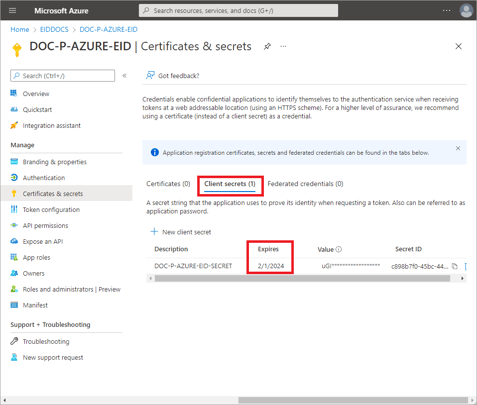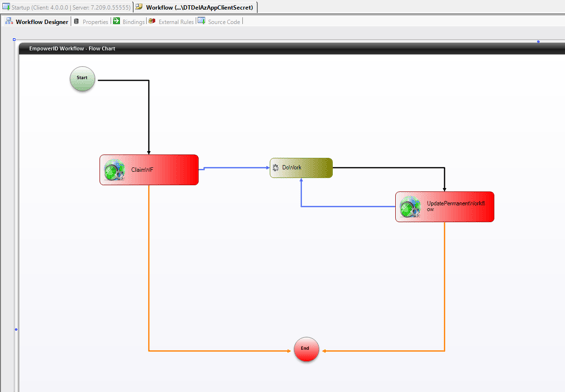
Azure Active Directory (now EntraID) plays a crucial role in managing user identities and controlling access to resources. Many applications rely on Azure AD to authenticate themselves, and this often involves the use of client secrets and certificates. However, the expiration of these credentials can lead to significant operational disruptions, making it vital for organizations to monitor and manage them effectively.
The Consequences of Ignoring Expiry
Replacing a client secret or certificate is a straightforward task when performed proactively. However, the real dilemma arises when these credentials expire unexpectedly. When an application suddenly stops working, organizations must scramble to identify the root cause, leading to downtime, loss of productivity, and potential financial implications.
One would imagine that a solution to this inevitable problem should exist out of the box within Azure Application Objects, but that is not the case. This seemingly insignificant problem can cause many failed application accesses, leading to unavoidable application downtime as the sync process basically stops working and users won't be able to sign in to their applications.

The Problem of Credential Expiration
When applications use the client credential flow in Azure AD, they must present valid credentials to prove their identity when requesting access tokens. These credentials come in two forms:
- Client Secrets: These are essentially secret strings that serve as application passwords. They are used to authenticate the application and obtain access tokens.
- Certificates: Certificates function as cryptographic keys that verify the application's identity. They act as a form of public key authentication when requesting access tokens.
While using client secrets and certificates is essential for secure authentication, it also introduces a challenge – their expiration. When these credentials reach their expiration dates, applications face authentication failures, rendering them unable to access the resources they need. This can disrupt critical business processes and lead to frustration among users.
The Need for Proactive Monitoring
To sidestep the unwelcome consequences of credential expiration, the need for proactive monitoring of client secrets and certificates within Azure AD applications cannot be overstated. Organizations require a reliable system capable of diligently tracking the status of these credentials and notifying the relevant stakeholders well in advance of their impending expiration.

Such proactive notifications grant organizations a crucial window of opportunity. This interval allows them to take pre-emptive corrective actions, thereby safeguarding the continuity of their operations and preserving seamless functionality.
In the quest for such solutions, a journey into the labyrinth of the internet awaits. It's a landscape where countless DIY solutions emerge like chaotic fragments of a puzzle. Among these are the ingenious yet often complicated Macgyvered solutions, including the utilization of Azure Automation runbooks scripted in PowerShell to schedule scans for certificates and client secrets. While some may find these makeshift solutions intriguing, it's our firm belief that users should never find themselves dependent on such methods for managing their Certificate Renewals.
Solution: Monitoring with EmpowerID
With EmpowerID, the solution becomes as simple as a few clicks. Thanks to our library of out-of-the-box workflows, you can effortlessly trigger a No Code Workflow event. This ensures that, in the event of an impending certificate or secret expiration, you receive a timely reminder directly in your inbox.
EmpowerID's monitoring system maintains a vigilant watch over all applications, issuing timely alerts to application owners. These alerts are strategically sent out, typically 30, 14, and 7 days prior to the credentials' expiration. Notifications are conveniently delivered via email and Microsoft Teams, ensuring that application owners are promptly informed.
This proactive approach empowers organizations to stay ahead of credential expiration issues, preventing unexpected disruptions and safeguarding access to critical resources. Furthermore, EmpowerID's flexibility allows for customization, enabling organizations to tailor monitoring to their specific needs.
Taking Monitoring a Step Further
EmpowerID doesn't stop at just expiration reminders. It can also be configured to send alerts whenever a client secret or certificate is created for an app. This is critical because unauthorized application connections to your Azure AD could potentially be the first step in a security breach by an external entity. Achieving all of this with a straightforward Drag-and-Drop Workflow is a testament to the flexibility of EmpowerID's workflow engine.
Tags: Active Directory, IAM, Virtual Directory, Access Governance, cloud security

